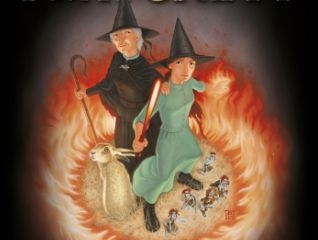
Pratchett, when he arrives at his idyllic local pub in Wiltshire, turns out to be full of this type of humour – deliberate, slightly coercive, very self-aware. Even Pratchett knows this is a tad too neat, however, so, this being Discworld, his fantasy kingdom on a flat planet sailing through space on the backs of four elephants who in turn stand on a giant turtle, Death makes a lugubrious wisecrack about it: "WASN'T THAT APPROPRIATE?" If the universe refused to display narrative sensibility, then Pratchett Jr would: that moment returns early in his new novel, I Shall Wear Midnight, in which a gruff, essentially kindly old man is vouchsafed a vision of youth and sunlight (though, instead of Karachi, the sunbeams glint off a leaping hare) and expires as he describes it. If there had been any justice or even narrative sensibility in the universe, he would have died there and then, shading his eyes from the sun of Karachi."

At one point, said Pratchett, in last year's Dimbleby lecture, his father suddenly said, "'I can feel the sun of India on my face,' and his face did light up rather magically, brighter and happier than I had seen it at any time in the previous year. Father and son had plenty of time to "have those conversations that you have with a dying parent", and to reminisce about his father's time in India during the war.

W hen, not very long ago, Terry Pratchett's father was given a year to live, Pratchett père took it, on the whole, philosophically.


 0 kommentar(er)
0 kommentar(er)
